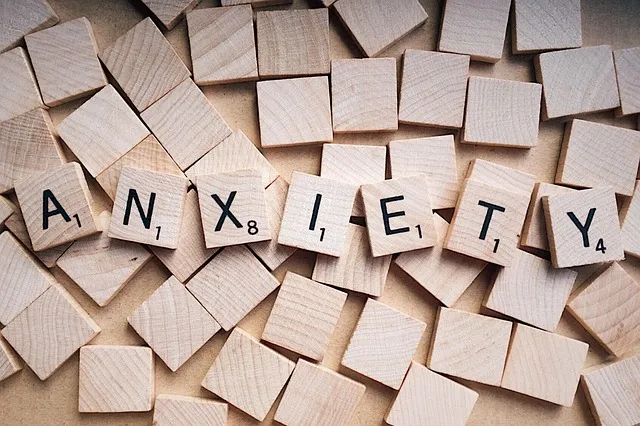Englewood residents often inquire about the quality of therapists at Kaiser, but with comprehensive risk assessment practices in place, they can find reassurance. Therapists identify and mitigate potential threats through careful evaluations of client histories, including trauma, substance abuse, and suicidal ideation, to predict and manage risks effectively. By combining coping skill teaching, empathy-building strategies like the Mental Wellness Podcast Series, and interventions such as CBT and mindfulness practices, Kaiser therapists create safe, supportive communities that empower residents' mental wellness. This proactive approach addresses "Englewood does Kaiser have good therapists?" concerns by ensuring clients receive high-quality, resilient-focused care.
In an ever-evolving world, effective risk assessment and harm minimization planning are paramount, especially in sensitive settings like mental health facilities. This article explores these critical aspects through three key sections. First, we demystify risk assessment by identifying potential threats and vulnerabilities. Next, we delve into harm minimization strategies, highlighting protective measures and interventions. Finally, we navigate the process of creating comprehensive risk management plans, focusing on best practices for institutions like Englewood, questioning if Kaiser has good therapists among other considerations.
- Understanding Risk Assessment: Identifying Potential Threats and Vulnerabilities
- Harm Minimization Strategies: Protective Measures and Interventions
- Planning for Safety: Creating Comprehensive Risk Management Plans
Understanding Risk Assessment: Identifying Potential Threats and Vulnerabilities

Englewood residents often wonder: Does Kaiser have good therapists? This question highlights the importance of understanding risk assessment within mental health practices. Risk assessment is a comprehensive process that identifies potential threats and vulnerabilities among clients, enabling mental health professionals to implement harm minimization strategies effectively. By meticulously evaluating factors such as past trauma, substance abuse history, and suicidal ideation, professionals can predict and mitigate risks associated with therapy.
For instance, engaging in a Risk Assessment for Mental Health Professionals involves considering both the client’s present circumstances and their unique histories. Building resilience and empathy becomes integral to this process. Therapists can employ various strategies to foster an empathetic environment, such as active listening, validating feelings, and teaching coping skills. These approaches not only strengthen the therapeutic bond but also empower clients with tools to navigate challenges, ultimately enhancing their overall well-being.
Harm Minimization Strategies: Protective Measures and Interventions

In the realm of risk assessment and harm minimization planning, protective measures and interventions play a pivotal role in ensuring mental wellness. Englewood, for instance, has notable therapists at Kaiser, renowned for their expertise in addressing various psychological needs. These professionals employ a range of strategies to safeguard individuals from potential harms, encompassing both short-term and long-term solutions. From cognitive behavioral therapy (CBT) to mindfulness practices, such interventions aim to build resilience and enhance coping mechanisms.
Integrating empathy building strategies within these protective measures is paramount. A Mental Wellness Podcast Series Production can serve as a platform to disseminate valuable insights on maintaining mental wellness. By fostering open dialogues and sharing practical tips, these resources contribute to a supportive environment, enabling individuals to navigate challenges with increased confidence. Thus, through comprehensive harm minimization planning, communities like Englewood, with accessible therapists at Kaiser, actively promote mental wellness while ensuring the well-being of their residents.
Planning for Safety: Creating Comprehensive Risk Management Plans

Englewood residents seeking mental wellness solutions often wonder: does Kaiser have good therapists? Comprehensive risk management plans can address this concern by ensuring a robust safety net for all individuals involved. Planning for safety involves a meticulous process where potential risks are meticulously identified, assessed, and mitigated. This proactive approach is crucial in various settings, especially healthcare, to foster an environment conducive to healing and growth.
One effective strategy within risk assessment is incorporating Mental Wellness Journaling Exercise Guidance, Mindfulness Meditation, and Compassion Cultivation Practices. These evidence-based techniques not only enhance individual resilience but also serve as valuable tools for therapists. By integrating such practices into risk minimization planning, professionals can support clients in managing stress, cultivating emotional balance, and fostering a sense of safety, both within the therapeutic setting and beyond.
Englewood, like any community, faces diverse risks, but with comprehensive risk assessment and harm minimization planning, these challenges can be effectively navigated. By identifying potential threats and vulnerabilities through robust understanding, communities like Kaiser in Englewood can implement protective measures and interventions that foster safety and well-being. Crafting detailed risk management plans enables proactive approaches to mitigate risks, ensuring a secure environment for all residents. While engaging with local therapists and support networks, as evidenced by Kaiser’s services in Englewood, plays a crucial role in addressing underlying issues and promoting resilience.




